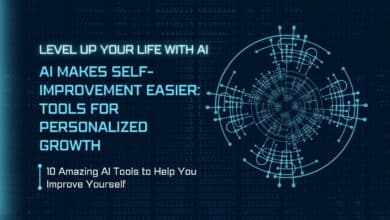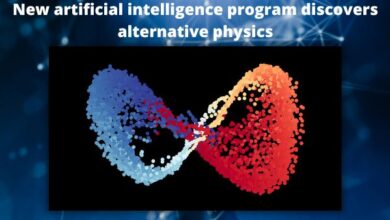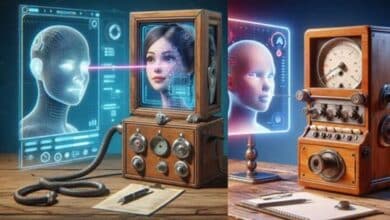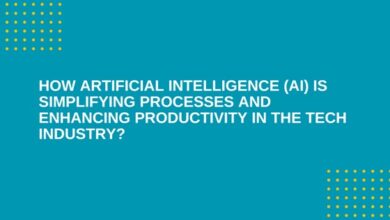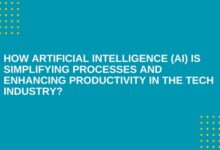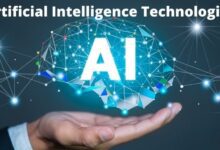Beyond the Algorithm: 10 Powerful Ways Humans Still Win
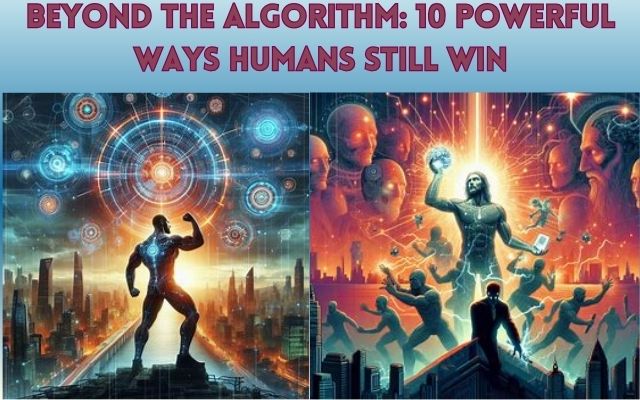
In our rapidly evolving digital world, algorithms have become a dominant force. They drive our online searches, influence our purchasing decisions, and even determine what we see on social media. But despite their growing influence, there are still powerful ways humans still win.
Humans possess unique qualities that algorithms simply cannot replicate. Our ability to empathize, to create, to learn from our mistakes, and to adapt to new situations gives us a distinct advantage. This article explores ten of these powerful human traits, demonstrating how they continue to give us an edge in a world increasingly governed by algorithms. So, let’s delve into the fascinating journey of human potential that extends far beyond the realm of algorithms.
The Power of Human Emotion
In the age of artificial intelligence, the power of human emotion stands out as a unique and irreplaceable trait. Emotions add depth to our interactions and decisions, influencing our actions in ways that algorithms cannot replicate. They allow us to connect with others on a deeper level, fostering empathy and understanding.
Recent studies suggest that while AI systems can mimic certain aspects of human intelligence, they lack the ability to truly understand and replicate human emotions. This emotional intelligence is what sets us apart, enabling us to navigate complex social situations, understand subtle nuances, and respond appropriately.
In contrast to algorithms, which operate based on pre-defined rules and patterns, humans can leverage their emotions to make nuanced decisions, often leading to more effective outcomes. This is just one of the many powerful ways humans still win in the face of advancing technology.
Creativity and Innovation
In the realm of creativity and innovation, humans hold a unique advantage. Unlike algorithms, which operate based on predefined rules, human creativity is limitless. It allows us to explore all possibilities, even those that may not have been considered before.
Recent advancements in AI have led to the development of generative AI technologies that can create new content such as text, images, and video. These technologies are designed to augment human creativity, not replace it. They can analyze vast datasets, identify patterns, and generate novel ideas, offering a unique perspective that complements human creativity rather than diminishing it.
However, despite these advancements, AI still falls short in truly replicating the depth and breadth of human creativity. The human ability to think outside the box and innovate continues to be a powerful way we still win in the face of advancing technology.
Empathy and Understanding
In the world of artificial intelligence, empathy and understanding remain uniquely human traits. While AI has made significant strides in many areas, it still falls short in truly understanding and replicating human emotions.
Empathy allows us to connect with others on a deeper level, fostering understanding and compassion that algorithms cannot replicate. This ability to understand and share the feelings of others is crucial in many aspects of life, including personal relationships, business interactions, and even conflict resolution.
Moreover, humans have the capacity to understand context, interpret nuances, and respond appropriately, which is something current AI technology cannot fully achieve. Despite the advancements in AI, the human ability to empathize and understand continues to be a powerful way we still win in the face of advancing technology.
Learning from Mistakes
In the face of advancing technology, one of the powerful ways humans still win is our ability to learn from our mistakes. While algorithms can perform tasks based on predefined rules, they lack the human capacity to reflect on errors and adapt accordingly.
Recent research has shown that we are more forgiving of mistakes made by algorithms than those made by humans. However, this does not negate the fact that humans have a unique ability to learn and grow from their mistakes, a trait that is currently irreplaceable by AI.
In fact, some researchers are exploring if this human learning strategy can be applied in machine learning. They propose a novel machine learning method called Learning From Mistakes (LFM), wherein the learner improves its ability to learn by focusing more on the mistakes during revision. Despite these advancements, the human ability to learn from mistakes continues to be a powerful way we still win in the face of advancing technology.
Adaptability
In the face of rapidly evolving technology, human adaptability remains a powerful advantage. Unlike algorithms, which operate based on predefined rules, humans have the unique ability to adapt to new situations and environments.
This adaptability extends beyond mere survival. It allows us to thrive in diverse settings, learn new skills, and embrace change. In contrast, algorithms require extensive reprogramming or retraining to adapt to new situations.
Recent studies suggest that while adaptive algorithms can learn from outcomes they influence, they still fall short in replicating the depth and breadth of human adaptability. This is because human adaptability is not just about learning from outcomes, but also about understanding context, interpreting nuances, and responding appropriately.
In the age of artificial intelligence, our ability to adapt continues to be a powerful way humans still win. As AI systems become more prevalent, our adaptability will become even more crucial.
Critical Thinking
In the age of artificial intelligence, human critical thinking remains a powerful advantage. Unlike algorithms, which operate based on predefined rules, humans have the unique ability to critically analyze situations, question assumptions, and make informed decisions.
This ability extends beyond mere problem-solving. It allows us to understand the implications of our actions, consider ethical dilemmas, and make decisions that align with our values. In contrast, algorithms require extensive programming to mimic this level of critical thinking.
Recent studies suggest that while AI can analyze data and identify patterns, it still falls short in replicating the depth and breadth of human critical thinking. This is because human critical thinking is not just about analyzing data, but also about understanding context, interpreting nuances, and making ethical decisions.
In the face of advancing technology, our ability to think critically continues to be a powerful way humans still win.
Leadership and Teamwork
In the face of advancing technology, human leadership and teamwork remain powerful advantages. Unlike algorithms, which operate based on predefined rules, humans have the unique ability to lead and work in teams.
Recent research suggests that employees prefer human leadership over algorithmic leadership. This preference is not necessarily because human leaders possess certain moral values, but primarily because they are human. Furthermore, Gartner’s research found a 37-percentage point increase in the number of employees reporting high engagement who report to a human leader versus employees who do not consider their leader to be a human leader.
This ability to lead and work in teams extends beyond mere task completion. It allows us to understand the implications of our actions, consider ethical dilemmas, and make decisions that align with our values. In the face of advancing technology, our ability to lead and work in teams continues to be a powerful way humans still win.
Ethics and Morality
In the age of artificial intelligence, human ethics and morality remain powerful advantages. Unlike algorithms, which operate based on predefined rules, humans have the unique ability to make ethical and moral decisions.
Recent research suggests that while AI can analyze data and identify patterns, it still falls short in replicating the depth and breadth of human ethics and morality. This is because human ethics and morality are not just about analyzing data, but also about understanding context, interpreting nuances, and making ethical decisions.
Furthermore, algorithms are not simply objective tools, but rather embody the values and assumptions of their creators. They highlight the importance of considering psychological factors when designing algorithms, as human behavior is often influenced by biases.
In the face of advancing technology, our ability to uphold ethical standards and protect the welfare of others continues to be a powerful way humans still win.
Frequently Asked Questions (FAQs) Beyond the Algorithm: 10 Powerful Ways Humans Still Win
What are some ways humans still win over algorithms?
The article discusses ten ways, including the power of human emotion, creativity and innovation, empathy and understanding, learning from mistakes, adaptability, critical thinking, leadership and teamwork, and ethics and morality.
Can algorithms replicate human emotions?
While AI systems can mimic certain aspects of human intelligence, they lack the ability to truly understand and replicate human emotions.
How do humans excel in creativity and innovation?
Unlike algorithms, human creativity is limitless. It allows us to explore all possibilities, even those that may not have been considered before.
Why is human adaptability important?
Human adaptability allows us to thrive in diverse settings, learn new skills, and embrace change. In contrast, algorithms require extensive reprogramming or retraining to adapt to new situations.
What is the role of ethics and morality in the context of AI?
Human ethics and morality are about understanding context, interpreting nuances, and making ethical decisions, which is something current AI technology cannot fully achieve.
Conclusion: 10 Powerful Ways Humans Still Win Beyond the Algorithm
In the face of rapidly advancing technology, it’s clear that humans still hold a unique advantage. Our ability to empathize, to create, to learn from our mistakes, to adapt, to think critically, to lead and work in teams, and to uphold ethical standards sets us apart from algorithms.
While algorithms have made significant strides in many areas, they still fall short in truly understanding and replicating these human traits. This is because these traits are not just about analyzing data, but also about understanding context, interpreting nuances, and making ethical decisions.
As we continue to navigate this digital age, it’s important to remember these powerful ways humans still win. Despite the advancements in AI, our unique human abilities will continue to be crucial in the face of advancing technology.
Human potential extends far beyond the realm of algorithms, and that’s something worth celebrating.

